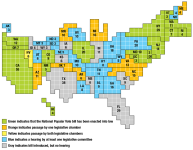Trump was the most unpopular president of modern times: Divisive and alienating, he rarely sought to reach out to the middle and his erratic behavior and harder-edged policies were strongly opposed by most Americans. Even before this year, his reelection would have been difficult.
But the president finally lost, aides and allies said, because of how he mismanaged the virus. He lost, they said, over the summer, when the virus didn’t go away as he promised; when racial unrest roiled the nation in the wake of George Floyd’s death and protesters ran rampant through the streets; and when federal and local authorities gassed largely peaceful demonstrators in Lafayette Square across from the White House so Trump could stage a photo op. And he lost, they said, during a roughly three-week stretch from late September to mid-October, when an angry and brooding Trump heckled and interrupted his way through the first debate and then, several days later, announced he had tested positive for the coronavirus.
He also lost, aides added, after years of confrontational and incendiary conduct turned off independent voters, who finally said they had seen enough.
The same impulses that helped lift him to victory in 2016 — the outsider ethos; the angry, burn-it-all-down cri de coeur; the fiery and controversial rants; the false reality forged through untruths and deception — contributed to his undoing just four years later. Exhausted voters in Michigan, Wisconsin and Pennsylvania, who once gave Trump a shot, turned on him Tuesday.

